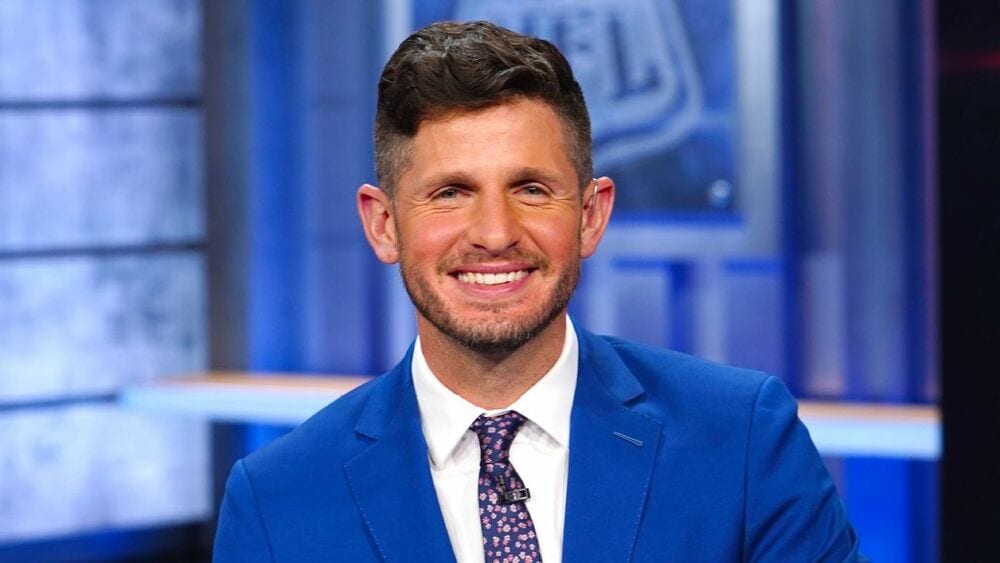I have a silly habit: I love washing dishes. I can’t go to bed with dishes in the sink. Do you have a random must-do chore you do around the house every day? Whatever it is, your daily habits like that one make you the person you are. I know from my football days that you are your daily habits. If you don’t practice well, you won’t play well.
Athletes call it the “one percent” rule. If you’re focused on getting just a little bit better each day, you’ll find over time that you’ll look back and see that small, daily habits actually made you better. Your kids can look back to see the same. Teaching good habits for kids can be tough, but it can be done. Here are 5 habits you should instill in your kids.
Habit 1: Show up.
To play at the pro level, or at any level, you have to show up consistently. Showing up is what separates players. You won’t get far if you don’t show up. My wife and I teach our kids to start planning for their tomorrow the night before. This helps get them mentally prepared for the next day so they show up ready for what may come their way.
Showing up consistently is what separates us as dads too. Showing up often means being on time and being helpful. It’s about knowing your responsibility. You can teach good habits for kids by modeling responsibility through your actions. Do what you say you’re going to do. If you make a promise, see it through. Trust me—your kids are watching.
Habit 2: Find the good.
Winston Churchill said, “Success is the ability to go from one failure to another with no loss of enthusiasm.” In the worst times, find the good. When I lost a football game, I could focus on the loss or I could find something worth learning about the loss. Yes, the wins are nice. But I often learned more from the losses.
Teach your kids to find the good—in people, in situations, and in themselves. I don’t want my kids learning to judge too quickly. Assume the best first. Work against being the downer of the group. Are you that guy in your family? No matter what’s happening, do your kids see your positivity? Learn to focus on the positive and you’ll raise more positive kids.
Habit 3: Be grateful.
I learned over the years with football just how fleeting my time was on the field. I didn’t always get this right, but I tried to appreciate the time I was given on the field. As you age, you realize even the seemingly small things, like working out and practicing with other athletes, are worth being thankful for.
Hanging on the door to my kids’ room is a sign with motivational reminders. One of the sentences is “I am thankful.” We always tell our kids—and we have them repeat it back to us—to “be thankful for what you have, not what you don’t.” In your words and actions, are you a living example of good habits for kids? Do they see someone who is grateful? Being grateful will change how you talk about your job, other people, and your family.
Habit 4: Lift up others.
The best teammates I’ve played with are guys who lift others up. On and off of the field, it’s important to be the one who encourages others. For most of my days, football was my family. I was blessed to have folks like Jon Kitna and Josh McCown encourage me and speak into my life.
Are you the dad who lifts others up? Do your kids see it? Walk by your kids and, out of the blue, tell them you love them or mention something good they did. If this type of talk is constantly in your home, it will change your kids’ lives. When our kids play a sport, we tell them every game to pick a teammate or coach and tell him or her something he or she did well. The goal is to raise kids who see beyond themselves and look for ways to encourage others.
Habit 5: Work hard.
Athletes know the importance of working hard. You can’t go very far if you aren’t willing to put in the work. Most folks see the good things that happen in those few seconds on the field. But they don’t see the hours, weeks, months, and years of hard work it takes to play on the field.
Paul “Bear” Bryant said, “We can’t have two standards, one set for the dedicated young men who want to do something ambitious and one set for those that don’t.” You have to teach your kids to do hard things. We ask our kids daily, “What are the two things you can control?” The answer is “your attitude and your effort.” We also ask, “What’s the difference between you and everyone else?” The answer is “out-working them.” Make sure your kids see you working hard and they’ll be more likely to do the same.
Sound off: What are some other habits we should instill in our kids?











Huddle up with your kids and ask, “How am I doing at teaching these five habits?”